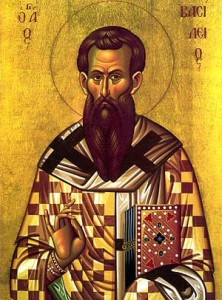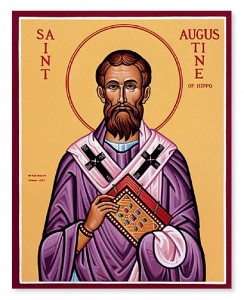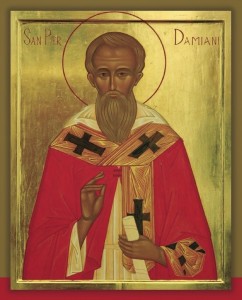When we reach back in theology history we tend to look upon our famous theologians with rose colored glasses. We tend to remember the best of what they did and discard the rest. However, here we are going to look at some of the worst things about some of the best known theologians. Feel free to add your own in the comments.
 Tertullian (155 – 240 CE)
Tertullian (155 – 240 CE)
Tertullian was another early philosopher like Justin Martyr who tried very hard to align the gospel with Platonic thinking. He was also like Justin in that he spent much time defending christianity against those who tried to drawn strange accusations against it, as well as those who pushed gnostic beliefs.
He was also key in addressing the persecution of the early church by the Romans and had great influence over the public with his writings. Even though he was a great intellect of his time, he also participated in the earliest birth of self-preprivation. He might be the least crazy person on this list, along with Justin but here are the deets.
- He believe that without baptism one cannot be saved and that it was baptism that washed our sins away.
- Any sin committed after baptism would not be affected by the baptism. This might sound like a problem since most people only got baptized once.
-
Since it is in fact prescribed that no one can attain to salvation without Baptism, especially in view of that declaration of the Lord, who says, ‘Unless a man shall be born of water, he shall not have life,’ there immediately arise scrupulous, or rather audacious doubts on the part of some, as to how, in accord with that precept, salvation can be attained to by the Apostles, who, except for Paul, we do not find baptised in the Lord.
- He does also try to reason this issue by adding that abiding with Christ would be symbolical of permanent baptism but then that would contradict his previous statement about physical baptism.
- Tertullian might have also originated the cliche term “everything happened for a reason,” assuming that reason is always God.
-
A good deed has God for its debtor, just as also an evil one.
- Wait a sec….. a bad deed has God to blame? I’m not sure I’m on board with that. Sounds a bit too Calvinistic for me.
-
- Tertullian believed that in addition to baptism for salvation and forgiveness of sin, confession of sins was needed to maintain salvation.
-
If you are inclined to draw back from confession [of sins] , consider in your heart the hell which confession extinguishes for you, and imagine first the magnitude of the penalty, so that you will not hesitate about making use of the remedy . . . .Therefore, when you know that after the initial support of the Lord’s Baptism there is still in confession a second reserve against hell, why do you desert your salvation? Why do you hesistate to approach what you know will heal you?
-
 Augustine of Hippo (354 – 430 CE)
Augustine of Hippo (354 – 430 CE)
Augustine was best known for his writing of “Confessions” and “City of God.” He is known as the founder of western Christianity. He lead many early Christians to free their slaves and treat them as equals.
Of his most public debates the most important and vitriolic controversy was his battle against Pelagianism. The Pelagians denied original sin and the fall of humanity. The implication of this aroused Augustine, who held that humanity was corrupt and helpless.
Augustine was also the father of compassion and love. He even broke the mold with culture of that time and emphasized love for those who are sick, ill, and even demon possessed (more on that here).
However genius Augustine was he was also possibly half schizophrenic. Here is the dirty list on Augustine.
- He was convinced that any amount of pleasure in the act of sex was sinful.
- Augustine believed that any pleasure connected to the act of sex/love making was sinful and of the fleshly desires.
- Augustine also believed that men should practice complete control over women. In discussion about Adam and Eve, Augustine claimed that the serpent tempted Eve because she was a women and less rational. Adam was partially to blame for not keeping her in check. I guess early western Christianity kept a strong pimp hand.
- He blamed his parents for not arranging an early marriage for him so that he would not be plagued by his outrageous sex drive.
- Augustine believed that baptism was necessary for salvation and that it actually produces regeneration.
- Augustine also believed that the use of contraception’s within marriage was a perversion of the marriage bed.
- It would be worth noting that this isn’t the most crazy thing to believe. Many Christians today still believe this to be true.
Much can be said of Augustine. He was a great church father whom the church is indebted to. But he also thought he was plagued by demons and was constantly fighting with his internal desire to remain celibate. In the long run, it might have driven him partially mad.
Justin Maryr (100 – 165 CE)
Justin Martyr was best known as the first Christian apologist as well as philosopher. He engaged in public written dialogues with his peers about history, philosophy, and misconceptions about Christianity. The later of those things because many people believed Christians were carnivorous and that they drank blood.
He is also well known for pairing Old Testament prophecies with New Testament and 1st century happenings. His more famous prophetic claims from the OT were as follows:The prophecies concerning the Messiah, and the particulars of His life, the destruction of Jerusalem, and the Gentiles accepting Christianity.
What he is not remembered for is some of the stranger things he believed. He may not be crazy like the last two were but he certainly had some strange thinking.
- He believed that Philosophy was a means of salvation in the gap between “The Law” and Christ.
- He believed that the “Logos” revealed divine knowledge to Plato and Sacrates.
- Justin tried really hard to combine the Logos that is Christ with the logos of wisdom that Greek philosophy spoke of.
-
For not only among the Greeks through Socrates were these things revealed by reason (logos), but also among the Barbarians were they revealed by the logos personally, when He had taken shape, and become man, and was called Christ Jesus. (I.5)
- He believed that Satan never blasphemed God until Jesus came.
- So apparently Satan was just waiting around a few thousand years for Jesus to come along. Never mind that Jesus said he is the father of this world. (Although, this claim was reported by Irenaeus, a contemporary of Justin’s later times and an admirer.)
- Justin actually struggled at time reconciling the beliefs of Plato with the words of Christ. So much so that rewrites about it in his 2nd Apology.
-
And I confess that I both pray and with all my strength strive to be found a Christian; not because the teachings of Plato are different from those of Christ, but because they are not in every respect equal.
-
 Peter Damian (1007 – 1072 CE)
Peter Damian (1007 – 1072 CE)
Peter Damian is canonized as a Saint in the Catholic church. He was a Benedictine Monk and also a church Cardinal. He has his own feast day on February 21st. He was one of the leaders of his time that fought for reform of the Catholic church and its riches. He was even appointed by the Pope to search out and destroy financial scandals within the church. He was very much a Pope Francis of his day, except he was only a cardinal.
Peter was also known for his theology and writings. His most famous was De Divina Omnipotentia, a long letter in which he discusses God’s power. He also wrote 67 other works that greatly influenced the church and it’s members.
Despite being a great leader in the Catholic church, Peter was the founding father of the “your flesh is evil and you must destroy it” theology. Here is the information on Pater Damian, and why is made the list for cooky theologians.
- Peter believed that philosophy and reason were of the devil.
- In the 11th century people started applying reason and philosophy to the Bible again. This lead an era where people began to question those who were in power and in the position of interpreting scripture. Naturally, this had to from the devil. God would never allow reason and thought.
- Peter ushered in the Medieval practice of flagellation.
- This is the practice of scourging themselves with flagellum and even with planks of wood with flesh tearing devices embedded in them.
- In a well known writing on the matter he said that scourging should be practiced as a”discipline” and as a means of mortification and penance.
- More could be said about Peter but I will let his own writing speak for themselves.
- “I scourge both flesh and spirit because I know that I have offended in both flesh and spirit.”
- “For the wisdom of the flesh brings death, but that of the spirit brings life and peace, since the wisdom of the flesh is the enemy of God; it is not subject to God’s law, nor can it be.”
- Peter’s finest moment was probably his reaction once the church began to move away from this practice once it was challenged by other well known theologians.
-
‘Tell me, you who in your arrogance mock at Christ’s passion, you who, in refusing to be stripped and scourged with Him, deried His nakedness and all His torments as foolish and vain things like the illusions which come to us in sleep, what will you do when you see Him who was stripped in public and hung on the Cross shining in the glory of His majesty, surrounded by the angelic host, with His immeasurable and incomparable splendor round about Him, more glorious than all things, visible or invisible? What, I say, will you do, when you behold Him for whose shame you now have nothing but scorn, seated on the fiery throne of the tribunal of Heaven, and judging the whole human race in the dreadful judgement of His justice? By what rash boldness of presumption do you hope to share in His glory, whose shame and injuries you scorned to bear?”
-
 John Calvin (1509 – 1564 CE)
John Calvin (1509 – 1564 CE)
John Calvin was a very smart a well educated French church reformer form the 16th century. He was instrumental in forming the doctrines of Sovereignty and many key believes of the Reformed denominations. Most notable are the 5 points of Calvinism, known as TUPLIP.
The main points of Calvinism might not be universally accepted among all the Christian denominations but in a 2010 survey almost 30% of pastors described their church as Calvinist or Reformed (For more on the poll and an analysis read this). However, as influential Calvinism has been it does not eliminate the fact that he was nearly tyrannical dictator who excommunicated people for minor infractions and even burned some at the stake. The full list below.
- Burned people at the stake (read more)
- Michael Servetus was one of the major opponents of Calvin and many of the reformists. He studied mathematics, geography, astrology, and medicine. Michael gaining fame as a physician, he came close to discovering the pulmonary circulation of the blood, and published a frequently studied book on the use of syrups in medicine. In spite of his success, Michael made enemies through his harsh speaking tones and strong stances. He also denied the prophecies of the Old Testament and made prophecies based on astrology.
- So what do you do with a strong and well known opponent? You kill them of course. And that is exactly what John Calvin did. He was tried in Geneva and denied legal council. He was then burned at the stake.
- Calvin formed the city of Geneva to be an earthly kingdom of God. Calvin believed that the church should replace the government and that is exactly what happened in Geneva.
- Calvin frequently banished people from Geneva an excommunicated people from the church.
- In 1551 Jérôme-Hermès Bolsec, a physician in Geneva, attacked Calvin’s doctrine of predestination. As a result Calvin had him banished for life. Because why defend your positions against opponents when you can just get rid of them? Hey isn’t that one of the reasons the reformed leaders felt the need to fight the Catholic church? Kettle calling the pot black?
- John Calvin was also known to punish people for committing sins. The moral law of the Bible was now the law of Geneva. When people wanted to practice christianity in a different way than Calvin, they were punished or excommunicated.
- John Calvin was so serious about infant baptism that he basically Donald Trump’ed his opponents when debating with him. He often engaged in name calling and slandering people to their face in public. A short-list of such events have been borrowed from a fellow blogger and entered blow. (Thanks Marc Cortez, Professor at Wheaton College).
- A frenzied spirit and disturber of the church
- “But since in this age, certain frenzied spirits have raised, and even now continue to raise, great disturbance in the Church on account of paedobaptism, I cannot avoid here, by way of appendix, adding something to restrain their fury.”
- A Hard Hearted Person
- “See the quibbles to which men are obliged to have recourse when they have hardened themselves against the truth!”
- Stupid – this one really hurt!
- “But God furnishes us with other weapons to repress their stupidity.”
- A Furious Madman
- “Let us now discuss the arguments by which some furious madmen cease not to assail this holy ordinance of God.”
- A Barbarian Destroyer of Scripture
- “In asserting a difference of covenant, with what barbarian audacity do they corrupt and destroy scripture?”
- A Trickster who Cloaks Falsehood as Truth
- “But lest they should blind the simple with their smoke, we shall, in passing, dispose of one objection by which they cloak this most impudent falsehood.”
- Deluded and Lazy
- “Hence it cannot but happen that they are every now and then deluded, because they do not exert themselves to obtain a full knowledge of any subject.”
- Absurd
- “And, indeed, if we listen to the absurdities of those men, what will become of the promise by which the Lord, in the second commandment of his law, engages to be gracious to the seed of his servants for a thousand generations (Ex. 20:6)?”
- Ridiculous and void of Reason
- “The distinctions which these men attempt to draw between baptism and circumcision are not only ridiculous, and void of all semblance of reason, but at variance with each other.”
- A frenzied spirit and disturber of the church
Now that I think of it, I think I have been called all of these names while debating Baptists and KJVO followers.
This entry was written a bit tongue in cheek. I am not a master of church history. If this article need correcting feel free to post corrections in the comments. Did I miss anyone on this list? Let me know also.


Fascinating! Thanks so much for your work. I am in recovery, and have a Higher Power that works well for me.
Thanks for reading! Praying for your recovery
The biggest problem is that the Bible itself is rubbish. Those who believe in the bible (no capitalization) would crucify God over and over again. Judaism, then the church, and its offshoot, Islam, are all falsification of the teaching of Zoroaster. God is not omnipotent. That is why true revelation is gnostic, in complete harmony with logic, teaching of Plato.
I forgot this old Post was out there in the ether. It needs update badly. Either way, “the Bible” is a collection of writings. When someone insists that the whole thing is rubbish I have to assume they don’t know much about the manuscripts. Some books/parts in the Bible really are poorly supported by evidence…. And some are not.